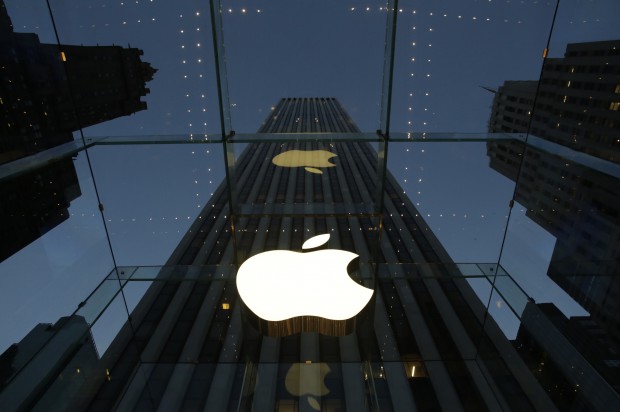APPLE JUST DID SOMETHING THAT HAS JOURNALISTS SCARED FOR THE FUTURE: HERE’S WHAT YOU NEED TO KNOW.
The tech giant rolled out a new version of its mobile operating system with a very controversial new feature
Jack Mirkinson SALON.COM
FILE – In this Wednesday, Nov. 20, 2013, file photo, the Apple logo is illuminated in the entrance to the Fifth Avenue Apple store, in New York. Apples widely used iTunes and app stores suffered a rare breakdown Wednesday, March 11, 2015, frustrating millions of music lovers and mobile device owners around the world. (AP Photo/Mark Lennihan, File)(Credit: AP)
On Thursday, Apple rolled out its new iOS 9 operating system, and the media industry confronted a powerful new enemy: its audience.
iOS 9, you see, is the first Apple mobile operating system to accommodate ad-blocking features. Judging from the fact that a string of ad-blockers shot straight to the top of the App Store charts within hours of iOS 9’s launch,, consumers are very excited about this. And why not? Ads suck. They slow down your browsing experience, they track you all over the internet, they blink and ping and prod at you and generally give you grief.
Unfortunately for the media, ads are also the way that most websites pay the bills. Journalism has already been in a precarious state for years; digital advertising simply doesn’t bring in enough money to ensure any sort of industry-wide stability. Now, the prospect of the widespread adoption of ad-blockers on mobile is making the industry break out in a cold sweat.
“If you hate advertising, don’t read/view ad-supported media. Stop offloading your responsibility and follow through on your beliefs,” tweeted blogger Jason Kottke, in a representative statement of the media’s reaction.
It was inevitable that something like this would happen. After all, we’ve been here before. In their pleas to readers that ad-blocking is killing their business, media executives sound exactly like their counterparts in the music and film industries who have spent untold millions searching for a way to prevent digital piracy. Some of those strategies worked better than others, but piracy in some form or another is here to stay. There will always be someone providing a new workaround, and audiences are rarely convinced by appeals to the sanctity of the artist’s—or, in this case, the journalist’s—craft.
In the near future, it seems likely that an arms race will break out. The answer to ad blockers is to create ads that can’t be blocked. The answer to those ads is to make more sophisticated ad blockers, and so on and so on.
Really, though, the furor around ad blockers feels like a lament for the failed promise of the Internet. The web, you may remember, was supposed to be a great democratizing force, and perhaps even a threat to entrenched global capitalism. New communities that challenged the conventional way of doing things might spring up. People could reach around the establishment find an audience in ways they never could.
Now, some of that has certainly happened. The internet has been a great democratizing force in many ways. But it has also been the best friend that capitalism (and mass surveillance) could ever hope to have. In the end, the world fell into the same old patterns. The supremacy of individualism is more powerful than ever. We built the core framework of the web on a handful of for-profit companies. We have entrusted private mega-corporations with the stewardship of the most fundamental transformation of world society for centuries. And, in the end, it’s those companies that are winning, just like they always seem to do. The little people are finding things much more difficult.
This hierarchy is becoming especially pronounced in the media industry. A few giants, like Buzzfeed and Vox, are busy sucking up venture capital money and joining forces with corporations like Comcast. They have the resources to create in-house ad units that can produce “native advertising” to get around the ad-blockers (at least until someone invents an ad-blocker for sponsored content). If you don’t have the money to do that, or your owners aren’t willing to lose money on your site, you’re out of luck. Meanwhile, Facebook, Twitter and Google are all drawing media organizations in closer and closer, further entrenching both their power over the industry and the threat they may pose to it down the line.
advertisement
If we want this trend reversed, we’re going to do have to do some serious thinking about the very nature of the Internet as it exists today. Maybe—just maybe!—there is an alternative to living and dying by the Facebook algorithm or Google’s ad network. I don’t know what that looks like, but it’s got to be better than what we have now.
Update: Peace, the most popular ad-blocking app to emerge since Apple released iOS 9, has been removed from the App Store by its developer, Marco Arment, who said of the decision, “Peace required that all ads be treated the same — all-or-nothing enforcement for decisions that aren’t black and white. This approach is too blunt.”








Follow Us!